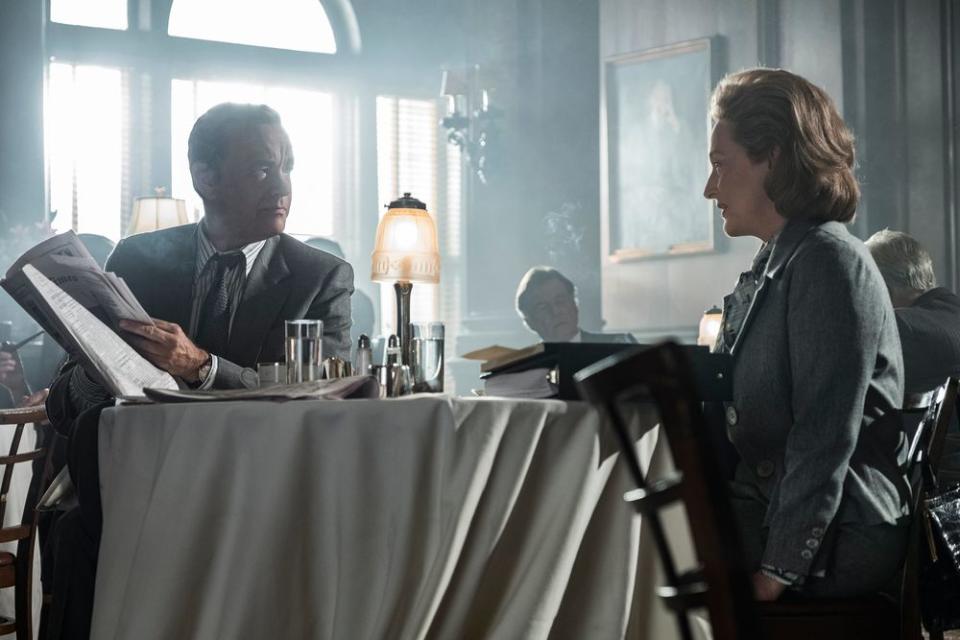The Post: Steven Spielberg on why investigative journalists are ‘my Indiana Jones’
First, there’s the timeliness of the story itself, which follows the team of editors and reporters at The Washington Post in 1971 as they debated whether to take the risk of publishing the Pentagon Papers, which would expose the government’s irresponsible actions involving the lengthy Vietnam War.
“I reacted to the script for the first time with a great deal of sort of enlightened frustration, obviously based on living in the current climate, atmosphere, and looking back and realizing that atmosphere had once before existed,” Spielberg says, referring to the Nixon administration’s attitude toward the press. “I’ve always believed in the power of the press. I’ve always believed the press, what they call the Fourth Estate, is a critical leveler of the playing field in terms of checks and balancing the truth with the lie. As I get older, my Indiana Jones becomes investigative journalists.” He laughs at his reference to his own work. “They become my real heroes.”
Second, the characters awed him, most of all Post publisher Katharine Graham, who inherited her father’s newspaper legacy only after her husband’s death. (Her father had bypassed her for the title.) “She was very confident that they made the right decision, that her father should have given it to her husband because he was so brilliant,” Spielberg explains. “She had always minimized herself… and our story is about how this amazing woman found her voice.”

And finally, there’s the rest of his powerhouse ensemble cast, including Carrie Coon, Bob Odenkirk, Tracy Letts, Matthew Rhys, Bradley Whitford, Sarah Paulson, Alison Brie, Bruce Greenwood, Jesse Plemons, Zach Woods, and more — a collection that thrilled Spielberg, especially in scenes when large numbers of the cast were in one room.
“It was just the kind of cast that’s a dream cast,” he says. “And I really encouraged electric, overlapping dialogue. I wanted everybody to certainly stick with the script, but turn it into kind of like a documentary, where it felt a little bit like a docu-drama… to feel like we were eavesdropping on real life.”

